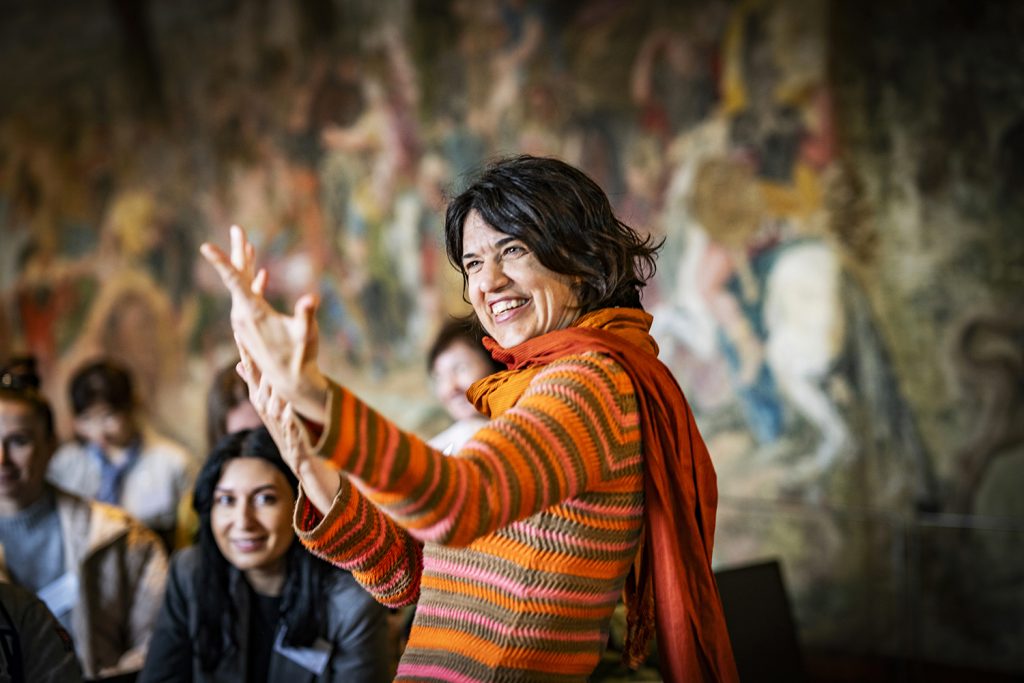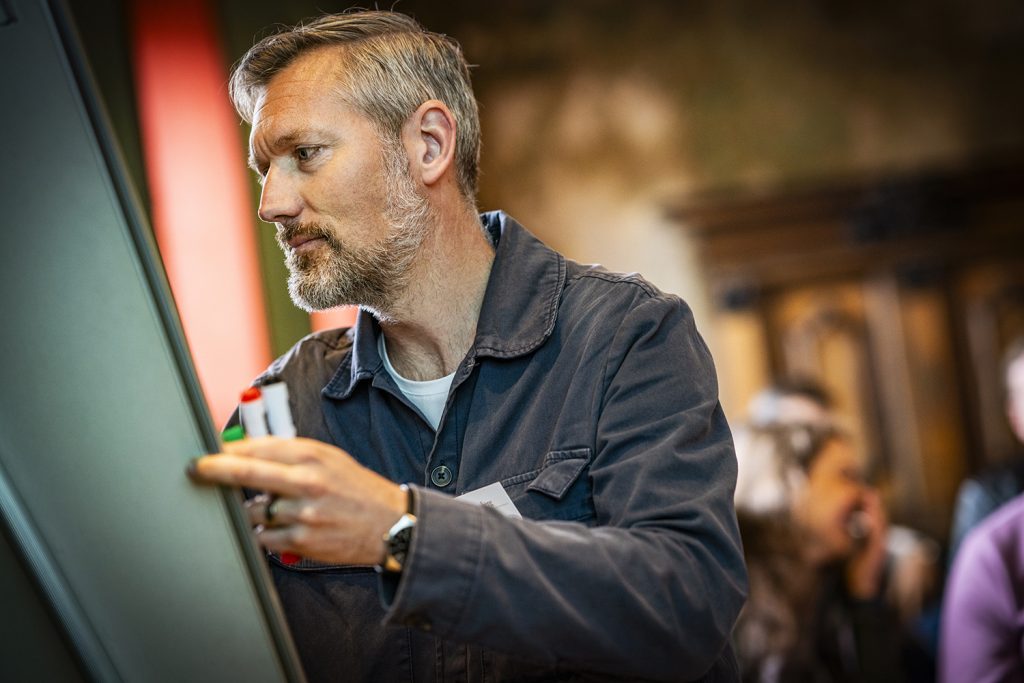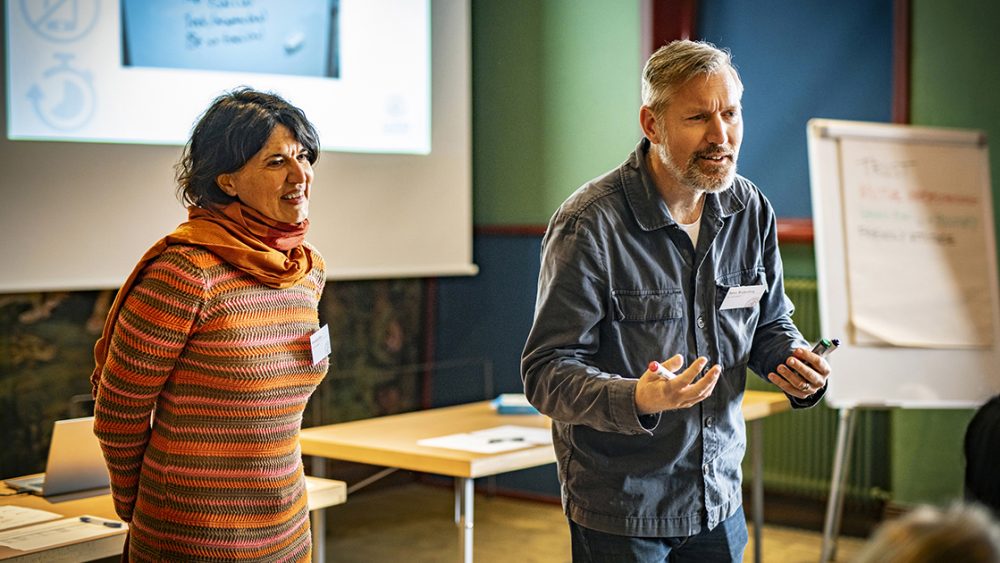In the face of accelerating urbanization, tightening carbon emission constraints, and increasing extreme weather events, addressing global challenges requires a paradigm shift in governance. The complexity and uncertainty of these issues call for collective action, ongoing dialogue, and collaboration among all stakeholders to find the best possible solutions. The professional training ‘Innovation in Governance for Urban Nature-based Solutions’ from Lund University aims to enhance the capacity of individuals and organizations to innovate and adapt.
The programme specifically targets professionals in public administrations in Armenia, Azerbaijan, Georgia, Moldova and Ukraine, focusing on Nature-Based Solutions (NBS) innovations to meet future challenges embodied by the UN Sustainable Development Goals (SDGs). Strengthening participants’ transformative leadership skills for innovation and sustainable urban governance in these regions is at the core of the programme.
“We aspire to gradually invite every part of their organizations to engage in shaping their future through their attitude, behaviour, and leadership,” says Bernadett Kiss, lecturer and research associate at the International Institute for Industrial Environmental Economics (IIIEE) at Lund University.
Emphasizes shared responsibility and accountability
Transformative leadership is a relational process that builds up leadership skills within and between individuals and organizations to form a community of change-makers who collaboratively address complex sustainability challenges. It requires transparent communication, trust-building, alignment of interests and accountability, and a shared learning experience. As Bernadett Kiss concludes, “Our goal is to create a community of leaders who are equipped to address the pressing issues of our time with innovation, resilience, and a commitment to sustainable change.”
Within the transformative leadership modules of the programme, participants work together in diverse groups to design common visions and work toward negotiated and shared goals. The process emphasizes shared responsibility and accountability, with the commitment to do everything to achieve the vision.
“Transformative leadership involves not only jointly working toward a vision but also the commitment to do everything to achieve that vision. It only works if everybody is authentically engaged and takes responsibility for their respective role,” Bernadett Kiss notes.

Empowering participants to challenge existing structures and views
The programme’s workshops are practice-oriented, enriched with role-playing and simulations, and grounded in the Inner Development Goals (IDGs), as well as the work of esteemed researchers on transformational leadership.
“We conclude our workshops with reflection sessions, where we often hear feedback from participants that this is how the world should be, even though it’s not their current reality. Bridging the gap between course and reality involves transformative skill-building, empowering participants to challenge existing structures and views, stand up for their values, and take decisive actions,” Bernadett Kiss adds.
“Sustainable change is hard to achieve without the unique and diverse skills of each individual in their teams,” says Björn Wickenberg, another lecturer in the programme, also researcher at IIIEE, Lund University. “Individuals must challenge and transform their ways of being and thinking, relating and collaborating, as well as acting and leading.”

Goal to inspire motivation and commitment among stakeholders
The process of transformation involves a shift in mindset, behaviour, systems, and culture to create sustainable outcomes that align with the evolving needs and aspirations of individuals, organizations, and communities. It requires a new type of leadership that can articulate a compelling vision for the future, inspire motivation and commitment among stakeholders, and navigate through uncertainty and resistance.
“Transformative leadership delves into underlying beliefs, values, and norms to effect lasting change. It’s about being open to experimenting and learning, and continuously improving, and having the courage to confront obstacles and setbacks along the way,” Björn Wickenberg explains.
Films where participants reflect on transformative leadership and their own role in the future
About the programme
“Innovation in Governance for Urban Nature-based solutions” is coordinated by IIIEE in collaboration with guest teachers from various departments at Lund University and in partnership with international organizations. It is delivered with the support of LUCE, the department at Lund University focusing on professional development and capacity development programmes.


zoritoler imol
Hi, Neat post. There’s an issue together with your web site in web explorer, may test thisK IE nonetheless is the marketplace chief and a big part of folks will omit your excellent writing due to this problem.
tlover tonet
I’m impressed, I have to say. Actually hardly ever do I encounter a blog that’s each educative and entertaining, and let me inform you, you’ve got hit the nail on the head. Your concept is outstanding; the issue is one thing that not enough persons are talking intelligently about. I am very joyful that I stumbled throughout this in my seek for one thing regarding this.
smortergiremal
Your style is so unique compared to many other people. Thank you for publishing when you have the opportunity,Guess I will just make this bookmarked.2
Camilla
I’m not sure why buut this weblog is loading very slow for
me. Is anyone else having this issue or is it a issue on my end?
I’ll chck back later on and see if the problem still exists. https://tri1Ls.webflow.io/